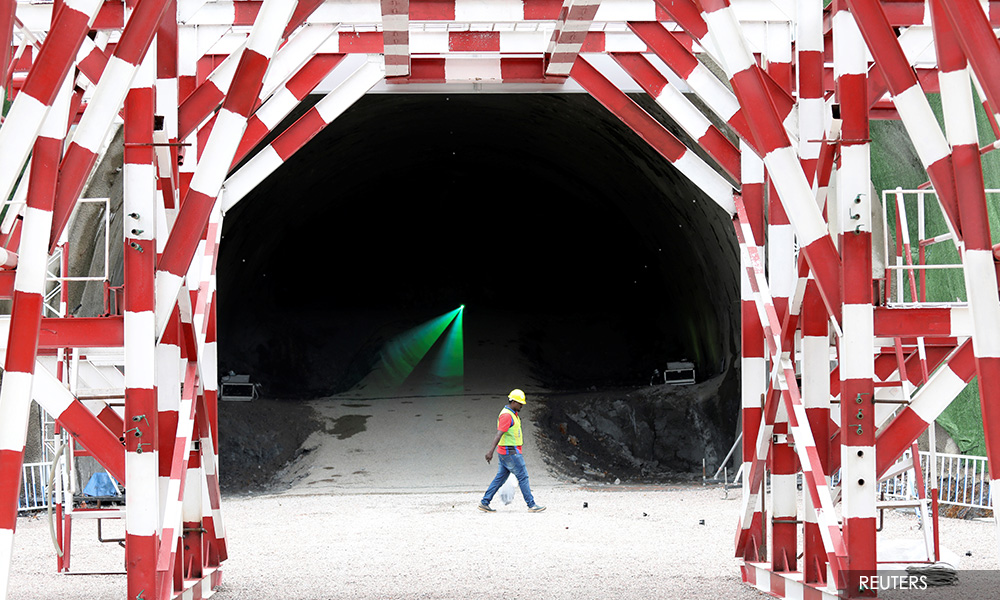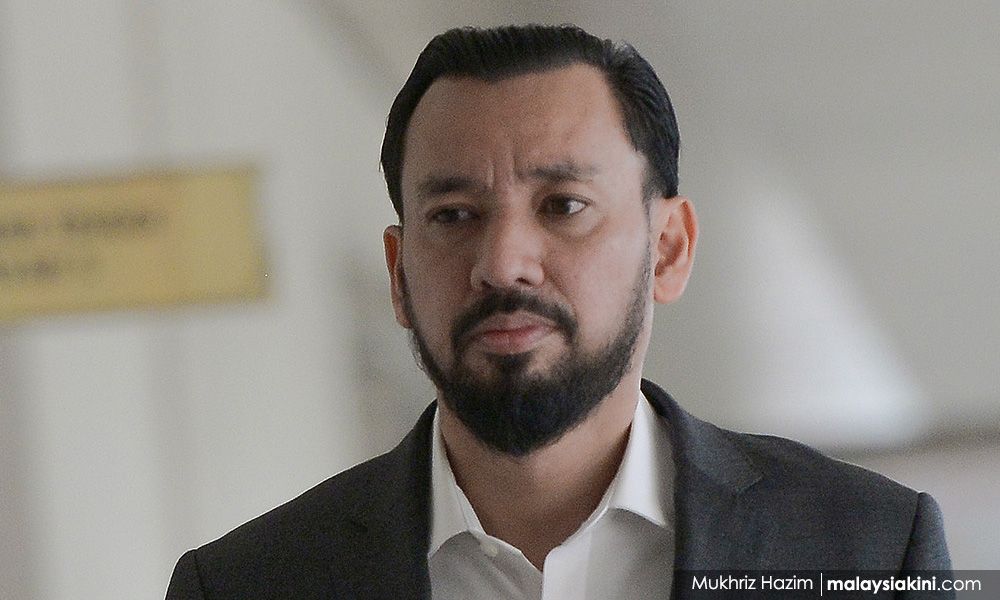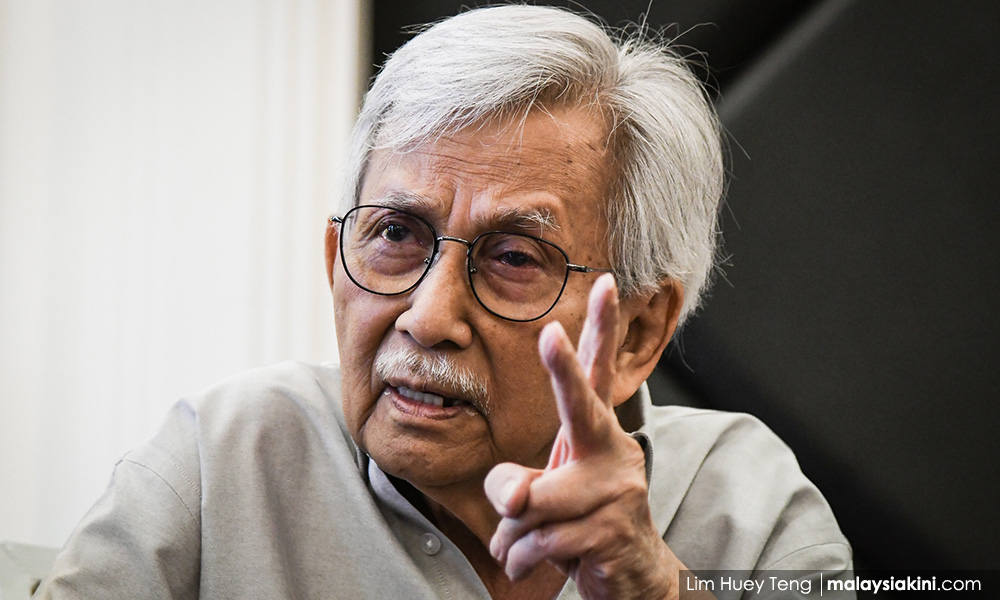
QUESTION TIME | The ongoing trial of former prime minister Najib Abdul Razak has thrown up very serious allegations over a number of high-profile projects which were discussed with China with the aim of covering up a huge hole of at least RM30 billion in 1MDB.
These are so serious that not only should the re-negotiated RM44 billion deal over the East Coast Rail Link (ECRL) with a China state company be reviewed, but it should become the subject of a wide and deep criminal and corruption probe by the MACC.
The implication is that a foreign government - China - may have conspired with the sitting prime minister of the day to funnel billions of ringgit into 1MDB through overpriced contracts to hide the massive losses in failed national strategic development company 1MDB.
The new evidence adds credibility to earlier reports of such schemes taking place and provides fresh leads, which should be followed. It also raises questions as to how we can make a new deal with China under such situations.
Even Harapan’s de facto head, Anwar Ibrahim had called for a review of the ECRL project in the light of the testimony at Najib’s trial, but this was quietly shunted aside by other ministers.

Transport Minister Anthony Loke (above) said the ECRL re-negotiations, as well as a review, had been made, while Foreign Minister Saifuddin Abdullah said all the problems that derailed the project had been resolved, effectively blunting what Anwar had said.
Tellingly, although the ECRL had been renegotiated, nothing was said about recovering the overpayment of projects and whether monies paid earlier had been totally recovered.
The allegations made at the Najib trial are extremely serious and warrant a full review of the ECRL and other projects with China which, if allegations are true, was complicit with Najib and others in attempting to overprice contracts to fill large holes in 1MDB.
An admission by a witness in Naib’s trial raised serious questions over the ECRL project and some pipeline projects.

Reports quoting the witness, Najib's former special officer Amhari Efendi Nazaruddin (above), said that a slew of mega projects was discussed with China over a bailout plan for 1MDB, where accusations had been made that billions of dollars went missing.
The projects include the Multi-Product Pipeline (MPP) and Trans-Sabah Gas Pipeline (TSGP), which have been terminated, and the ECRL, which has been renegotiated. Others mentioned included a proposed Bangkok-Kuala Lumpur high-speed rail, and the development of the federal territory of Labuan into an offshore banking and tourism hub.
This was supposedly in a document Amhari received entitled "Action Point: China-Malaysia" via email following his trip to China. Apparently, Najib had despatched Jho Low, who ran 1MDB behind the scenes, and Amhari to cut infrastructure deals with China state-owned enterprises.
The main deal which materialised was the ECRL project, which was renegotiated by Daim Zainuddin, Prime Minister Dr Mahathir Mohamad’s choice for the chief negotiator to come up with a new deal. There were also large pipeline projects subsequently discontinued by the government.
Daim came up with new terms which cut the cost of the project by some RM22 billion from the previous RM66 billion to RM44 billion. Significantly, a tunnel costing RM8 billion was no longer included, while there was a major realignment of the route.
It was reported previously that the ECRL was considerably overpriced by around RM20 billion, even at RM55 billion, so as to siphon the excess and put it into 1MDB, which had a deficit of funds following theft from the so-called national strategic development company. Also, a “pipeline to nowhere” was being built at a total cost of nearly RM10 billion.

The reports previously had said that these monies would be used to offset deficits in 1MDB caused by theft and that Jho Low (above), who brought these deals to the China authorities, is in China, ostensibly being sheltered by the country.
Key questions include whether there has been any recovery of monies, which include RM20 billion in connection with ECRL, and some RM8 billion for the pipeline, and of course the thorny issue of whether Jho Low is in China and if so, when will he be returned to face charges in Malaysia.
The ECRL project has a history which is beguiling, convoluted and confusing. The Harapan government, before GE14, had held up the ECRL as one of those projects which were unnecessary, corrupt and done with indecent haste and considerable expense.
In the immediate aftermath of the election victory in May last year, it was announced that the RM55 billion ECRL project with a China company would be cancelled because of high costs. If the cost of construction of an additional line from Gombak to Port Klang was included, it would raise the cost to RM66 billion.
Even before the GE14, reports had circulated in the media to say that the construction costs for the tunnel had been inflated by some RM20 billion. Mahathir himself had said, shortly after the May 2018 general election, that a sum of this amount had been paid to a company outside Malaysia improperly via a loan taken from China for the project.

Mahathir’s appointment of Daim (above) as chief negotiator raised eyebrows as there was by then a cabinet in place and procedurally, the renegotiation should be done by the relevant ministry with help from other ministries and government departments. Daim was also head of the Council of Eminent Persons set up by Mahathir to assist him as prime minister.
Daim announced the renegotiated terms with China, but said nothing about overpayments and their return. The main reason for Malaysia’s capitulation, after having announced an outright cancellation earlier, is that a large compensation has to be paid to China.
But even that is debatable - legal circles opine that if a contract was corrupt, then it could be terminated without any compensation having to be paid.
Now, we are stuck with a still expensive RM44 billion ECRL that is not needed (an earlier RM36 billion double-tracking rail project on the west coast of Peninsular Malaysia has done hardly anything for rail travel) and may have incurred other costs such as overpayment for projects as well.
The way forward, as far as this is concerned, will be for the MACC to open fresh investigations into attempts to diddle the country of a further RM30 billion by inflated contracts to fill the hole of a like amount caused by theft at 1MDB, and to determine if the renegotiated contract was fully above board.
It is still not clear whether this overpayment, which looks like it has already been paid in, has been recovered by the government. If this overpayment is not recovered, it could double the amount of money that has been lost by the government in the 1MDB scandal to over RM60 million from an estimated RM30-42 billion.
Also, in the light of the 1MDB scandal, it is important to ensure that all contracts and awards of tenders and projects follow a standardised process to fully study them, have open, transparent tenders and feasibility studies.
Instead, the current government continues to have negotiated contracts, agrees to projects at the whims of leaders and before proper feasibility and other studies have been conducted, perpetuating a system that can be abused by leaders and bring great losses to country and nation.
It seems we have yet to learn the lessons of 1MDB.
P GUNASEGARAM is puzzled by our total acquiescence to China, which may well be harbouring one of our fugitives who was allegedly responsible for the world’s greatest robbery. - Mkini



No comments:
Post a Comment
Note: Only a member of this blog may post a comment.